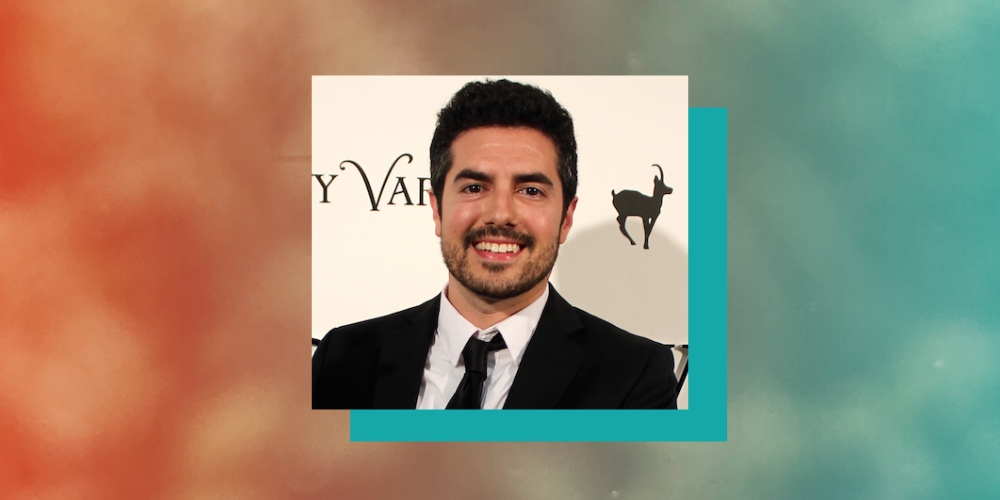Alumni Spotlight: Robert Cristiano '13
The Alumni Spotlight is a place to hear from the School of the Arts alumni community about their journeys as artists and creators.
Robert Cristiano '13 is a Brooklyn-born independent filmmaker. His producing credits include indie features Bob and The Trees (Sundance ’15, Winner - Crystal Globe - Karlovy Vary Int’l Film Festival), My First Kiss and The People Involved (LA Film Festival ’16) and Keep The Change (Tribeca Film Festival ’17), as well as the Broadway-themed web series Understudies. In recent years, Cristiano has produced more than 10 award-winning short films which have screened at over one hundred film festivals in twenty different countries. In 2013, he was the recipient of the Producer’s Guild of America’s prestigious Debra Hill Fellowship for emerging producers. Cristiano is currently developing several feature film and television projects, as well as producing commercial work for brands like Starbucks and Adidas.
Was there a specific faculty member or peer who especially inspired you while at the School of the Arts? If so, who and how?
This is an impossible question to answer because I was truly inspired by the whole faculty at Columbia. I had never written or directed anything, so I entered the program incredibly open to learning even the slightest thing that I could from everyone. Ira and Maureen inspired me to keep the big picture in mind when approaching everything, whether it be a film or my career. Eric, Tom, and Hillary showed me different ways of looking at the world and challenged me to give audiences an engaging and satisfying experience. The writing faculty really inspired me to take chances, learn about our characters and constantly dig deeper to improve our work.
How did attending the School of the Arts impact your work and career as an artist?
Even though I was a producing concentrate, I was determined to learn as much as I could about good storytelling while I was at Columbia. After I fulfilled my requirements, I took as many additional screenwriting classes and audited as many directing classes as I could. I wanted to make sure that I could make educated and meaningful contributions to the writers and directors that I was going to work with. Those classes taught me what it felt like to be in a writer or director's position and that taught me how to be a really great partner and collaborator.
What was your favorite or most memorable class while at the School of the Arts?
I have so many great memories of the program, but I think the classes that were most memorable were when I was most out of my comfort zone. I think creating the characters and the story is the most difficult job, and I was fortunate to have many wonderful writing teachers at Columbia including Dan Kleinman, Andy Bienen, Alan Kingsberg, David Klass, Joe Cacacci and Ramin Serry. Malia Scotch-Marmo's class was probably the most memorable because she really opened my eyes to story structure and did it in the most entertaining and engaging way.
What were the first steps you took after graduating?
Life immediately after graduation was tricky to navigate, but I was focused on two things. The first was to get started working on feature films as quickly as I could, since I had never made or worked on one from start to finish. I joined fellow Columbians as we launched into prep for Luigi Campi's My First Kiss and the People Involved, which ultimately was made a year later. I also got my first taste of what a really great (and tiny) indie film could be when I joined a bunch of brilliant Columbia grads on John Magary's The Mend. And the second thing I did was to try to strengthen connections within my larger network which included the PGA, The National Board of Review, as well as the other producers and filmmakers I met along the way with the goal of continuing to learn at the pace that I did at school.
What advice would you give to recent graduates?
The NY film community is thriving right now, and I think it's really important for people who do not have experience outside of short films to see how a professional production is run. Over the course of working on one film, you can get a great feel for how each of the different departments work together, and how the hierarchy within the departments work. You learn about what to expect and look out for on different-sized projects, and that's especially crucial for producing concentrates. I would also recommend recent grads continue working with their trusted collaborators and pushing projects forward even though the odds might seem stacked against them.
